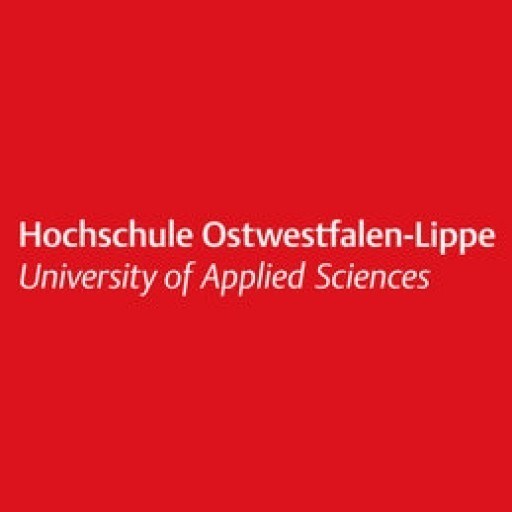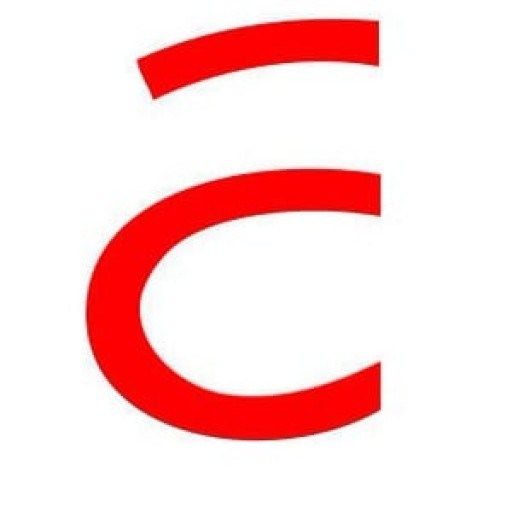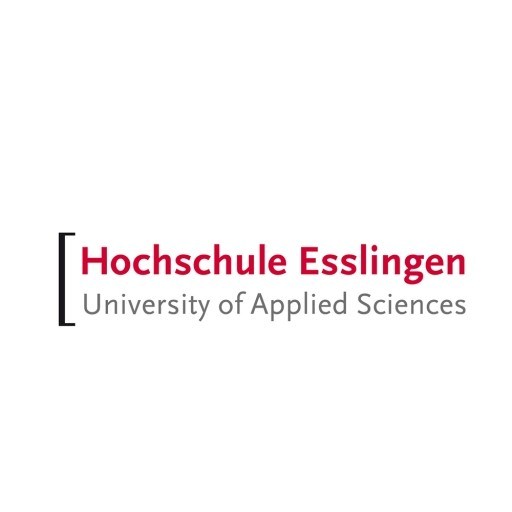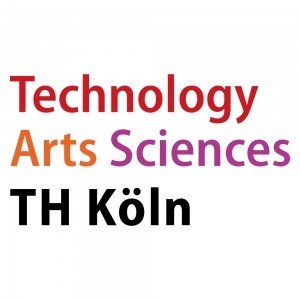The Master's course is designed to build on the students' previous studies by offering a focus on relevant, time-tested design and planning methods for lighting solutions whilst teaching the required technical and scientific background reflecting the current state of knowledge.
In addition to this core focus on architectural lighting, specific courses are offered such Public Light Art, Lighting Design, Advanced Lighting Design, and Urban Lighting. These courses address aspects such as sustainability, ethical conduct, and human-centred design. The primary goal of the Master's course of study is to qualify students with backgrounds in interior design, architecture, or engineering for the growing interdisciplinary and international field of lighting design and planning.
A particular emphasis is placed on real-world applications and close collaboration with external partners in the lighting industry, software manufacturers, architects, engineering firms, and other universities. This is why the programme has a long-term partnership with DIAL, the German Institute for Applied Lighting Technologies. DIAL is a modern, independent organisation with international experience in lighting planning and technology as well as the development of lighting planning freeware. With many years of experience in training lighting planners, DIAL has extensive contacts in the international lighting industry and planning sectors. This course delivers a one-of-a-kind combination of well-founded academic education and professional, up-to-date real-world experience.
Courses are offered at both campuses Detmold and Lüdenscheid.
The course has a clear international orientation and is expressly intended to prepare students for work beyond Germany, both in Europe and the rest of the world. All courses are conducted in English.
Master's theses in this course are intended to have as much real-world and research-based focus and interdisciplinarity as possible. Students complete their theses in collaboration with external partners and/or other departments at the University.
In addition to this core focus on architectural lighting, specific courses are offered such Public Light Art, Lighting Design, Advanced Lighting Design, and Urban Lighting. These courses address aspects such as sustainability, ethical conduct, and human-centred design. The primary goal of the Master's course of study is to qualify students with backgrounds in interior design, architecture, or engineering for the growing interdisciplinary and international field of lighting design and planning.
A particular emphasis is placed on real-world applications and close collaboration with external partners in the lighting industry, software manufacturers, architects, engineering firms, and other universities. This is why the programme has a long-term partnership with DIAL, the German Institute for Applied Lighting Technologies. DIAL is a modern, independent organisation with international experience in lighting planning and technology as well as the development of lighting planning freeware. With many years of experience in training lighting planners, DIAL has extensive contacts in the international lighting industry and planning sectors. This course delivers a one-of-a-kind combination of well-founded academic education and professional, up-to-date real-world experience.
Courses are offered at both campuses Detmold and Lüdenscheid.
The course has a clear international orientation and is expressly intended to prepare students for work beyond Germany, both in Europe and the rest of the world. All courses are conducted in English.
Master's theses in this course are intended to have as much real-world and research-based focus and interdisciplinarity as possible. Students complete their theses in collaboration with external partners and/or other departments at the University.
Educational organisation
First semester:Core Modules
- Lighting Technologies, venue: Lüdenscheid
- Inspection, Evaluation, Calculation, venue: Lüdenscheid
- Lighting Design, venue: Lüdenscheid
- Urban Lighting, venue: Detmold
Elective Module
- Elective Module 1, venue: Detmold
Project Module:
- Project Advanced Lighting Design, venue: Detmold
Second semester:
Elective Module
- Elective Module 2, venue: Detmold
Project Module:
- Project Best Practice, venue: Detmold/Lüdenscheid
- Master's thesis and Colloquium
Elective Modules
- Interiors - Exhibition Lighting
- Public Space - Light Art
- Product Development - Light fixtures
- Select from Elective Modules from Master Integrated Architectural Design (MIAD)
Course objectives
The Master's in Lighting Design is offered to graduates with a Bachelor's, Master's, or comparable university degree in interior design or other design, planning, or engineeringdisciplines (such as architecture, urban planning, electrical engineering, industrial design, art, civil engineering, or mechanical engineering) as well as relevant professional experience in building and interior design planning or lighting design and planning.
Students who do not meet the prerequisites outlined above may also sign up for course modules. They will be offered the opportunity to earn a "Graduate Diploma in Lighting Design".
The career prospects for graduates of this Master's degree course include professional architectural, engineering, and planning offices as well as companies in the
lighting industry, research institutions, and universities. There are also other technology fields in which this training would be useful, such as the investigation of current software
applications and simulation technologies in lighting planning, research into new production methods, design and material innovations for lighting design, the importance of visual comfort in interior and exterior spaces, and the energy-saving potential offered by lighting options.
Language requirements
Evidence of English proficiency documented by one of the following tests or certificates, with the indicated minimum score (for those who obtained their university entrance qualification at a non-English speaking institution):- at least seven years of English in school education with a minimum grade D (sufficient) in the last four semesters
- TOEFL paper-based 550
- TOEFL Internet-based (ibt) 79-80
- TOEFL computer-based 213,
- TOEIC 750
- IELTS 6,5 - 7,0
- Cambridge CPE/CAE pass or
- proof of an equal standard
Academic requirements
Entry RequirementsQualification for the Master of Lighting Design (MLD) shall be documented by:
1. University entrance qualification or an equal standard (e.g., secondary school graduation certificate)
2. a) A Bachelor's degree or German Diploma ("Diplom") in interior architecture with a minimum study duration of eight semesters (240 credits)
or
b) A Bachelor's degree or German Diploma ("Diplom") in a course of study with the substantial scientific or engineering content (for example Architecture, Architectural Engineering, Electrical Engineering, Design, or Arts) with a focus interior and / or lighting design and / or planning and with a minimum study duration of eight semesters (240 credits) in combination with the evidence of three of the following courses from the Interior Architecture Bachelor's programme:
- Lighting Design 1 or Lighting Design 2 (each 6 ECTS)
- Advanced Visualisation or Advanced Design (each 6 ECTS)
- Project Construction or Project Specialisation (each 10 ECTS)
At least one of the above courses must be achieved before starting the Master of Lighting Design (MLD). Two courses can be caught up in the first semester.
It is recommended to the applicants with a Bachelor's degree or German Diploma ("Diplom") according to b) to complete a eight weeks practical training or internship in the professional field of interior architecture and / or lighting design and / or planning.
3. Evidence of the specific, that is, professional and methodological suitability for the Master of Lighting Design (MLD)
4. Evidence of English proficiency documented by one of the following tests or certificates, with the indicated minimum score (for those who obtained their university entrance qualification at a non-English speaking institution):
- at least seven years of English in school education with a minimum grade D (sufficient) in the last four semesters
- TOEFL paper-based 550
- TOEFL Internet-based (ibt) 79-80
- TOEFL computer-based 213
- TOEIC 750
- IELTS 6,5 - 7,0
- Cambridge CPE/CAE pass or
- proof of an equal standard
5. Portfolio: Applicants must submit a portfolio that includes some of their most important and relevant works related to urban, architectural, building or façade design and/or construction.
Work samples according to the following should be submitted on a CD-ROM:
- Three samples of work from the previous course of study or professional experience, one of which, if possible, is the Bachelor's or Master's thesis or comparable final examination
- Two to three smaller work samples which demonstrate additional interests and specialised fields
- Up to two samples can be parts of team projects if the contribution of the applicant is indicated and clearly recognisable. The work samples must be submitted in a DIN A4-sized portfolio in a suitable data format such as PDF.
- A written explanation by the applicant describing the projects and the concepts behind each project. In the case of team work, the applicant should clearly indicate her/his role in the project. Limit your letter to one page.
- A written declaration that the applicant has produced the work samples on her or his own
6. Motivation letter and a resume: Applicants must submit a motivation letter that should address their background as it relates to the requested specialisation (Architectural Design, Façade Design or Computational Design).
7. Evidence of relevant professional experience of at least one year in the area of architecture, interior architecture, building or engineering sector or lighting design and/or planning
Students that do not meet the prerequisites outlined above but with corresponding apprenticeship and professional experience may also sign up for course modules and may enrol in the modules. They will be offered the opportunity to earn a "Graduate Diploma in Lighting Design".
Applications are due by 30 October of the year before the start of the programme.
Send your application to:
Hochschule Ostwestfalen-Lippe,
International Office
Mrs Maryse Niemeier
Emilienstraße 45
32756 Detmold
Germany
+49 5231 769 6091
Enrolment fees
Enrolment fees approx. 268 EURCosts of living
In addition to the tuition fee, secondary expenses will occur for lectures and courses that are not held on our campus in Detmold. Additional expenses for travelling, accommodation, and living will occur during the study programme. We always try to keep these expenses to a minimum.Arrival support
Our International Office is responsible for service and support for international students. For more information, see:http://www.hs-owl.de/en/international.html
or
http://www.hs-owl.de/fb1/international.html
Accommodation
Accommodation is available through the Student Services Office or on the private market.Information can be found on the Internet at:
http://www.hs-owl.de/studium/wohnen-in-owl.html
or
http://www.hs-owl.de/fb1/international.html








